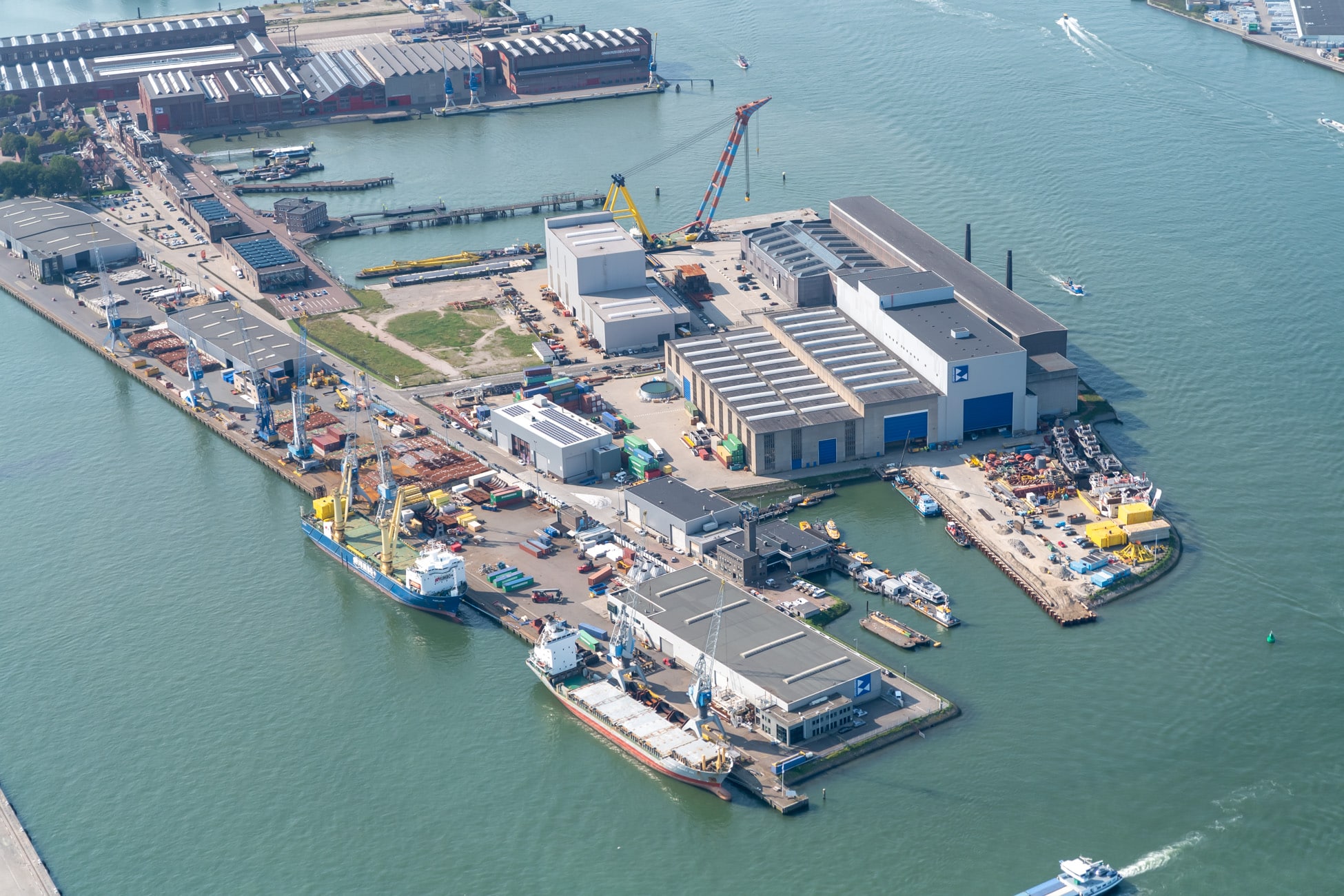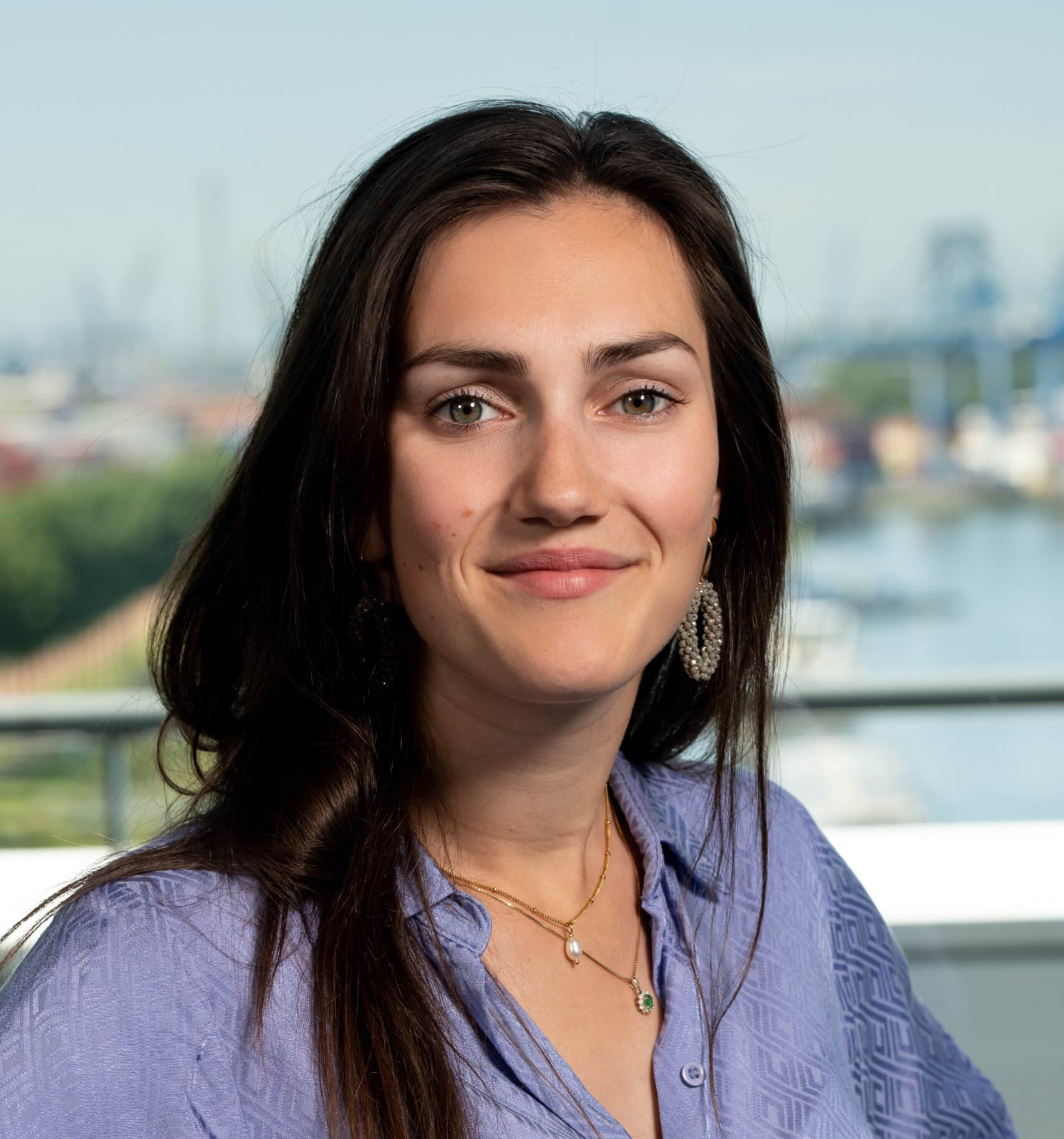Kees van de Vrie explains: “At Heijplaat, we handle storage and transshipment of various non-containerised goods. This involves project logistics and consolidation—combining large and small components delivered in various ways, and then transporting the assembled results further. On the site, we have four halls totalling 15,000 square metres and a 4,500-square-metre assembly warehouse built in the ’90s. When we started considering sustainability for our company, I got in touch with Olivier Noorduyn from the Servicepunt Zon, the municipal department promoting solar energy. The municipality aims to make the port of Rotterdam the greenest in the world, and we are keen to contribute. We plan to install solar panels on our warehouse roof to generate our own energy. I attended several meetings and consultations, and the municipality advised us on the right approach. After some calculations, we realised that we could install solar panels, but not cover the entire roof. That would generate too much power, which would be wasted during peak times, as there’s no favourable policy for feeding excess power back. There are more options to explore, however. We could potentially sell electricity to other businesses or collaborate on a local energy hub. Purchasing a battery is also an option. We are continuing with further electrification of our building and vehicles. We’ve already installed LED lighting, and two of our three water-side cranes, as well as our four overhead cranes, are electric. We’re upgrading our central power supply and working on shore power for the ships that dock with us. We hope to be entirely electric and self-sufficient in about eight years.”





